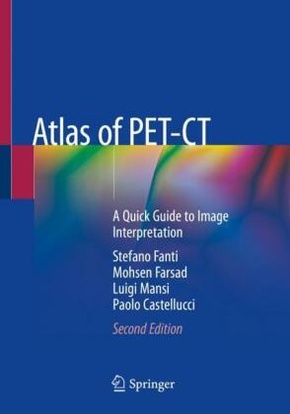
Atlas of PET-CT - A Quick Guide to Image Interpretation
| Verlag | Springer |
| Auflage | 2019 |
| Seiten | 365 |
| Format | 17,7 x 2,0 x 25,3 cm |
| Gewicht | 894 g |
| Artikeltyp | Englisches Buch |
| ISBN-10 | 3662577402 |
| EAN | 9783662577400 |
| Bestell-Nr | 66257740A |
This new atlas, the fourth of a successful series, is a completely revised and updated edition of a previously published FDG PET-CT atlas. In the past few years, considerable progress has been made in the field of PET-CT imaging, and this new edition takes full account of these recent developments. Furthermore, its educational mission has been broadened: beyond serving as a straightforward guide to FDG PET-CT imaging it now encompasses the integrative use of contrast-enhanced CT and MRI. The new edition also includes non-oncological indications for FDG PET-CT.
The atlas aims to help imaging practitioners to recognize physiological and benign pathological FDG uptake and illustrates in a case-based, practical manner the PET-CT appearances of all the major tumors and infectious, inflammatory, and neurodegenerative disorders. The main clinical applications are covered, and learning points and pitfalls are clearly articulated. The consistent, user-friendly format facilitates image interpretation and allows rapid review of key information needed for FDG PET-CT imaging.
Inhaltsverzeichnis:
Introduction.- Normal Distribution, Variants and Artefacts of FDG.- PET-CT in Oncology.- PET-CT in Inflammation and Infection.- PET-CT in Neurodegenerative Diseases.
Rezension:
"Atlas of PET-CT by Stefano Fanti and coworkers is a nice, practically oriented, and well-illustrated compilation of PET-CT clinical cases that will be extremely helpful to nuclear medicine physicians, in particular those training in residency programs. ... I strongly recommend this Atlas to be included in the library of all teaching departments. This comprehensive case series will delight all young nuclear medicine specialists in training, avid to see demonstrative cases accompanied by compelling teaching points." (Ignasi Carrió, European Journal of Nuclear Medicine and Molecular Imaging, Vol. 47, 2020)
